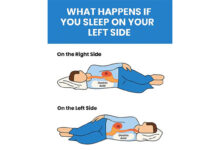Meniere’s Disease: Symptoms, Causes, Treatment & Natural Remedies
Meniere’s disease is a chronic inner ear disorder that affects balance and hearing, leading to episodes of vertigo (spinning dizziness), tinnitus (ringing in the ears), hearing loss, and ear pressure. It typically affects one ear but can progress to both over time.
This condition can be debilitating, causing sudden attacks that disrupt daily life. While there is no cure, treatments and lifestyle changes can help manage symptoms effectively.

Symptoms of Meniere’s Disease
Symptoms often come in sudden “attacks” lasting 20 minutes to several hours. Common signs include:
✔ Vertigo – Severe spinning sensation, often with nausea/vomiting
✔ Tinnitus – Ringing, buzzing, or roaring in the affected ear
✔ Hearing loss – Fluctuating, usually low-frequency hearing loss
✔ Ear fullness – Pressure or congestion in the ear
✔ Balance problems – Unsteadiness even between attacks
Over time, hearing loss may become permanent, and some people develop chronic imbalance.
Causes & Risk Factors
The exact cause is unknown, but it’s linked to excess fluid (endolymph) in the inner ear, disrupting balance and hearing signals. Possible triggers include:
🔹 Abnormal fluid drainage (due to blockages or genetic factors)
🔹 Autoimmune reactions (where the immune system attacks the inner ear)
🔹 Viral infections (such as herpes or meningitis)
🔹 Head trauma or migraines
🔹 Allergies or poor blood circulation
Risk factors:
-
Age (40-60 most common)
-
Family history of Meniere’s
-
Chronic stress or fatigue
-
High salt intake
Diagnosis
There’s no single test for Meniere’s. Doctors diagnose it based on:
-
Medical history (recurrent vertigo + hearing issues)
-
Hearing tests (audiometry) – Checks for low-frequency hearing loss
-
Balance tests (VNG, VEMP, or ECOG) – Measures inner ear function
-
MRI or CT scans – Rules out tumors (like acoustic neuroma)
Medical Treatments
While no cure exists, these treatments help manage symptoms:
1. Medications
-
Anti-vertigo drugs (Meclizine, Betahistine) – Reduce dizziness
-
Anti-nausea meds (Dramamine, Zofran) – Ease vomiting
-
Diuretics (Hydrochlorothiazide) – Reduce fluid buildup
-
Steroids (Oral or Injections) – For severe inflammation
2. Non-Invasive Therapies
-
Vestibular rehab therapy (VRT) – Improves balance
-
Hearing aids – If hearing loss worsens
-
Pressure pulse devices (Meniett device) – May help fluid drainage
3. Surgical Options (Rare Cases)
-
Endolymphatic sac decompression – Reduces fluid pressure
-
Vestibular nerve section – Stops vertigo signals
-
Labyrinthectomy – Destroys balance function (last resort)
Natural Remedies & Lifestyle Changes
Many patients find relief through diet and home remedies:
✔ Low-Sodium Diet (<1,500 mg/day)
-
Excess salt worsens fluid retention in the ear.
-
Avoid processed foods, canned soups, and salty snacks.
✔ Hydration & Diuretic Foods
-
Drink plenty of water (helps regulate fluid balance).
-
Eat natural diuretics (celery, cucumber, lemon, ginger).
✔ Stress Management
-
Stress triggers attacks—practice yoga, meditation, or deep breathing.
✔ Caffeine & Alcohol Reduction
-
Both can worsen tinnitus and vertigo.
✔ Ginger & Ginkgo Biloba
-
Ginger tea reduces nausea.
-
Ginkgo may improve circulation to the inner ear.
✔ Essential Oils (Peppermint, Lavender)
-
Helps with nausea and dizziness (inhale or apply diluted).
Final Thoughts
Meniere’s disease is challenging but manageable. A combination of medical treatments, diet changes, and stress reduction can significantly improve quality of life.
Have you or a loved one experienced Meniere’s? What helped you? Share in the comments!

